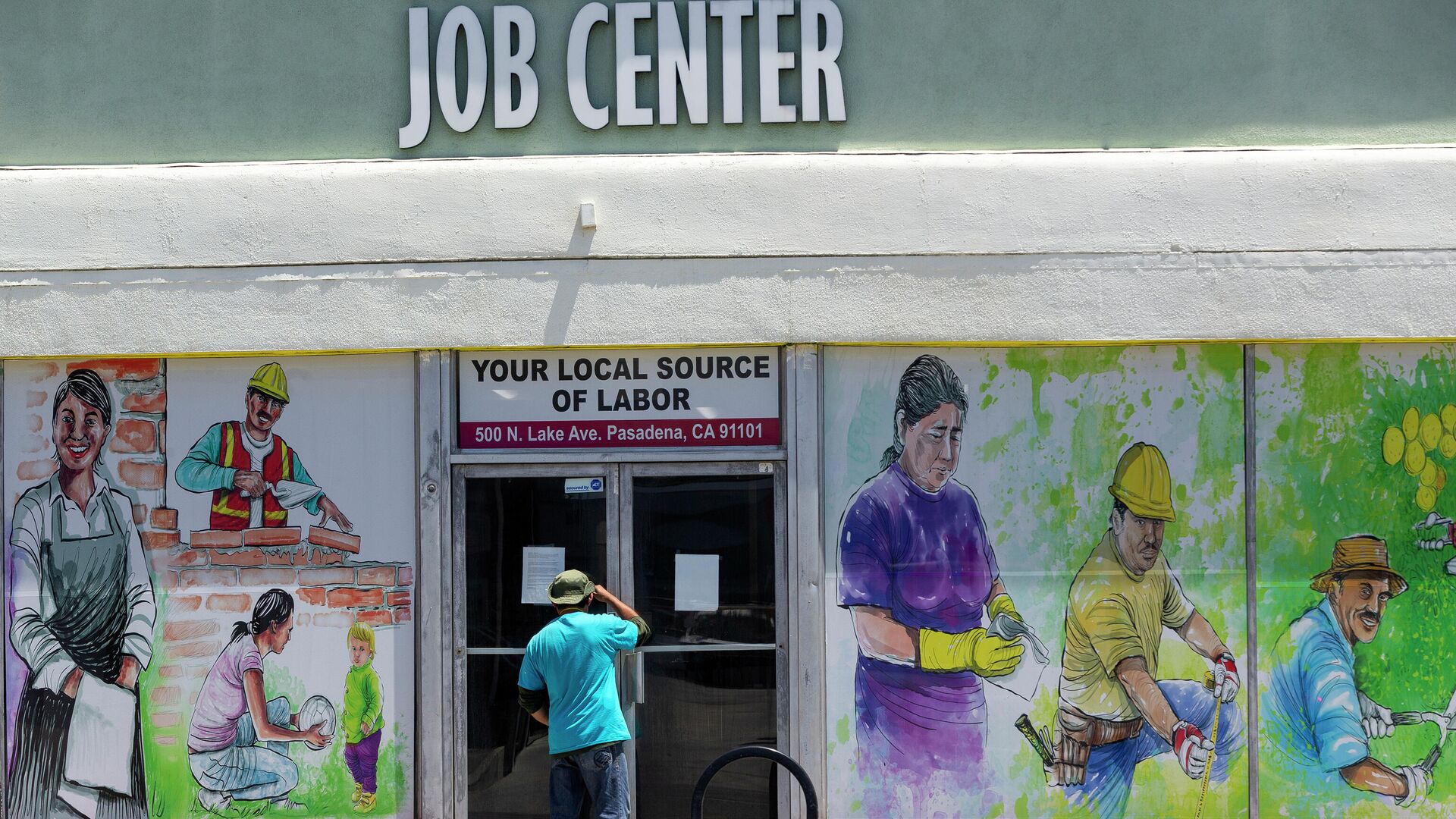‘That’s Progress’: Month After Federal Unemployment Program Ended Was Worst for Job Growth of 2021

© AP Photo / Damian Dovarganes
Subscribe
In the first month after the Biden administration allowed a pandemic-era unemployment benefit boost used by 8 million people to expire, the US economy recorded its slowest increase since US President Joe Biden took office in January.
According to a new jobs report published by the US Department of Labor on Friday, the US economy only added 194,000 new jobs in September - the smallest number this year and just barely half the 366,000 added in August.
"Jobs up, wages up, unemployment down. That's progress," Biden said on Friday.
"Jobs up, wages up, unemployment down. That's progress," President Biden says on the U.S. jobs report. pic.twitter.com/N5jGYSoWvM
— MSNBC (@MSNBC) October 8, 2021
Technically, the unemployment rate declined to 4.8% from 5.2% at the end of August, but that was in part due to people leaving the labor force entirely, meaning they have been without work for so long, they are no longer actively looking for a job. According to the report, there are still 6 million people not counted in the labor force who want a job, in addition to the 7.7 million officially unemployed.
The report also notes that long-term unemployed people, who have not had a job for more than six months, stands at 2.7 million and accounts for 34.5% of all unemployed people in September.
“Employment is slowing when it should be picking up because we’re still on the course set by the virus,” Diane Swonk, chief economist for the accounting firm Grant Thornton, told the New York Times. Biden struck a similar tone, saying that the Delta variant-driven outbreak had peaked in early September, but that daily new cases had decreased by one-third by the end of the month, signaling the potential for positive change on the horizon.
However, future promises are likely of little comfort for the 8 million people who lost their federal unemployment benefits last month. The program was allowed to expire on September 6 without an extension, even though the deadline was set months ago, before the ultra-transmissive Delta variant of COVID-19 drove a new nationwide outbreak.
Writing to congressional leaders in mid-August “on behalf of President Biden,” Treasury Secretary Janet Yellen and Labor Secretary Marty Walsh said the increased federal unemployment program “was always intended to be temporary and it is appropriate for that benefit boost to expire." Biden encouraged states to continue to pay out boosted unemployment checks using remaining federal funds, but more than half had already ended their federal programs months earlier.
Conservatives argued that the unemployment aid programs were artificially inflating the unemployment rate, allowing workers to remain on the government dole instead of going out and finding jobs. Friday’s report seems to make a mockery of those claims.
The federal unemployment benefit wasn’t the only pandemic aid program the Democrats let end, either. Federal bans on foreclosure and eviction were also allowed to lapse without renewal as well, along with a moratorium on student loan payments.
An end to unemployment benefits, with such a large percentage of recipients being long-term unemployed, means that millions more are now exposed to the danger of eviction. Already, 1.4 million Americans said they expect to be evicted in the next two months, with another 2.3 million saying it was "somewhat likely" they would soon lose their homes. Nationwide, an estimated 7.7 million households are behind on rent, meaning as many as 15 million could become unhoused.
Pandemic relief bills passed in December 2020 and March 2021 set aside $46 billion for paying off renters’ debts and $10 billion for helping underwater federally-financed mortgages. However, due to Byzantine bureaucratic application programs, just 11% of the rental aid and even less of the mortgage aid have actually been paid out. The program’s catastrophic failure has helped fuel a new call by working-class activists for the government to simply cancel unpaid rent debt entirely.
